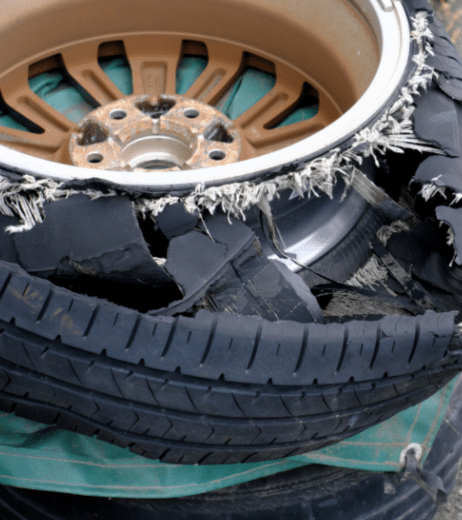
Experienced Texas Product Liability Attorneys
Representation for catastrophic injury caused by defective products
Consumers rely on manufacturers to ensure that products work safely. These days, manufacturers can use sophisticated software to design and test their products. Industrial equipment, machinery, and chemicals as well as household and consumer products should be designed to be safe and should be manufactured as designed. When the manufacturer knows or should know of potential dangers from using its products, the manufacturer must warn users of such dangers.
At Slack Davis Sanger, our lawyers are respected by clients, insurance companies, and defense lawyers. We've earned a reputation for our ability to obtain significant recoveries for our clients when manufacturers fail to design, manufacture, or market their products safely. Additionally, our attorneys have successfully litigated cases that resulted in outcomes that altered product designs to protect others from harm.
The attorneys of Slack Davis Sanger understand how traumatic injuries can affect your life. We will work with a network of product safety experts to thoroughly research and present your claim.
"Slack Davis Sanger represents the ultimate in professionalism combined with a true caring attitude.” - Colonel Ray Toler, Client
What are the requirements for filing a product liability claim in Texas?
Product liability law as a legal category includes many types of cases According to Texas law, product liability action encompasses:
Any action against a manufacturer or seller for recovery of damages arising out of personal injury, death, or property damage caused by a defective product. The action may be based on strict product liability, , negligence, misrepresentation, breach of an express or implied warranty, or any combination of the aforementioned theories of liability.
There are three common types of product liability claims in Texas:
- Strict liability—In strict liability claims, there is no need to show the manufacturer was negligent. If the product is found to be defectively designed, manufactured, or marketed, and such defect caused the injury, the manufacturer can be held liable.
- Negligence—A manufacturer can also be held liable if it failed to follow industry standards in the design, manufacture, marketing, or testing of its products.
- Breach of Warranty—A manufacturer or seller of products may be liable if its products fail to meet the terms of the warranties made about its products. These warranties may be expressed in writing or implied as a matter of law.
The experienced team at Slack Davis Sanger can help discern which type of product liability theory of recovery your claim falls under and will hold the responsible parties accountable for the damages caused by the defective and dangerous product.
What are the three categories of defective product liability claims?
In order to make a successful product liability case, you must prove that the damage experienced was a direct result of the defective product. Product defects fall into one of three main categories:
- Manufacturing Defects—manufacturers have a responsibility to create products that are safe and free from defects during creation. If your losses resulted from a manufacturing defect that occurred during the assembly or manufacturing process, or the product does not adhere to the intended design in some way, your claim would be categorized as a manufacturing defect.
- Design Defects—design defects differ from manufacturing defects in that the defect is in the original design itself. Meaning, the intended product design is defective or flawed in some way that makes the product unsafe. In order to establish a design defect, it must be shown that the product, as designed, was unreasonably dangerous and that there existed an alternative design that was safer and feasible.
- Marketing Defects—Not all products can be entirely safe and may inherently come with some risk of injury. In these cases, it is the responsibility of the manufacturer to inform the consumer of any risks and to provide instructions on proper use to mitigate any risk to the consumer. When a company fails to inform the consumer of risks related to the product, this is classified as a marketing defect.
- Causation—In each category of product defect, manufacturing, design, or marketing, it must be shown that the defect was a substantial cause of the injury.
Who is liable for defective product injuries in Texas?
At Slack Davis Sanger, we file claims against all defendants who may have been liable for your injuries or that of a loved one. Possible defendants in a products liability case include:
- The manufacturer of the product
- The distributor of the product
Sellers are sometimes liable under certain conditions as well. For instance, when a seller helps develop warnings or instructions, aids in the design, or installs a product, they may be liable for damages.
Other defendants may include any parent companies, any intermediaries in the supply chain, maintenance companies, and repair companies.
The damage part of your product liability claim is like any personal injury claim. The liable defendants are responsible for all of your economic losses (medical bills and lost income) and your non-economic losses (pain and suffering, mental anguish, physical impairment, and disfigurement).
How Can a Product Liability Lawyer Help Me?
Product Liability claims must be made within two years of an incident. In some cases, depending on the injuries inflicted, an attorney may be able to extend the claim timeframe. At Slack Davis Sanger, our product liability lawyers have more than 200 years of combined experience fighting for personal injury victims.
We work with your doctors to fully assess the severity of your injuries, the medical care you need, and how much your injuries have changed your life. We are respected across Texas for our understanding of product liability laws, and know how to hold those accountable for your losses.

